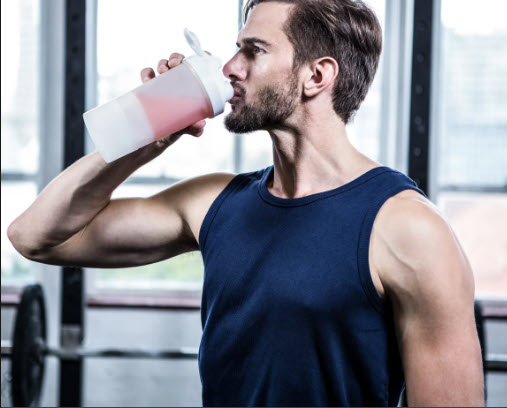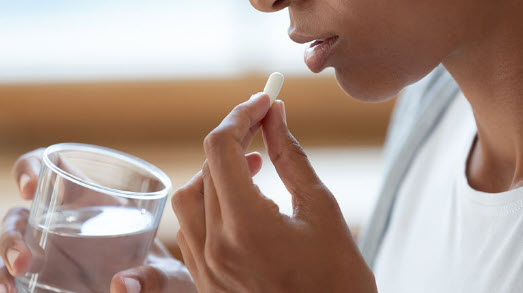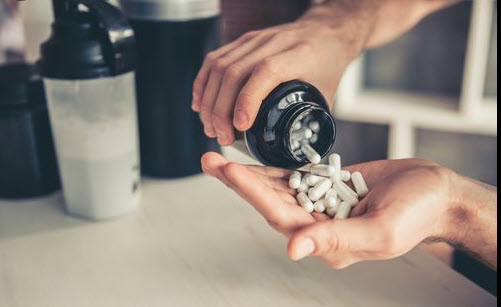These pills help you get more out of your workouts, but experts have some reservations:
In 2016, the dietary supplement market was valued at $122 billion, and it is still growing.
[1] Workout supplements, for example,
are marketed in a range of forms, from pills to powders and ready-to-drink smoothies,
and are often taken before (‘pre-workout) or after exercising (‘post-workout).
According to estimates, the global pre-workout supplement market will reach $13.98 billion in 2020 and
nearly double to $23.77 billion by 2027.
Supplements To aid sleep, immunity, joint pain, relaxation, gut health, and post-workout recovery are available.
However, the pre-workout supplement industry has recently gotten a lot of attention. (Not everything is positive.)
If you look at Instagram, you may think that pre-workout pills, often known as “pre-workouts,
” are a fitness must-have that’s just as important as a well-fitting sports bra and a good pair of sneakers.
In reality, the hashtag “pre-workout” has been used in over 4.6 million Instagram posts.
The photographs demonstrate how diverse one term can be: Chews,
capsules, canned beverages, powders, and colorful liquid in shaker bottles are all marketed as ways to improve your workout.
It used to be that eating a banana or a slice of toast before a hard workout was plenty. However, every exerciser (at least on social media) suddenly discusses pre-workout.
I need pre-workout to get in a good workout.” “Oh my God!” exclaimed the speaker. This workout is quite tricky. I can’t believe I didn’t take my pre-workout supplement!” “Are you serious? You don’t use pre-workout?”
Given how frequently these supplements are discussed and how extensively advertised they have become,
it’s essential to learn what scientific studies and professionals in the field say about them.
While some pre-workout supplements may contain healthy, energy-boosting substances, others may be ineffective or dangerous. Before you join the pre-workout cult, you need to know.
Why do we need it before exercise?

“Pre-workout” refers to any supplement—usually in the form of a powder drink mix,
but also in the conditions indicated above—that purports to improve workout performance when consumed before the workout.
First, it’s crucial to understand that nearly every supplement and exercise nutrition manufacturer has its unique pre-workout recipe,
which means that no two tubs will have the same—or even similar—ingredients. Over half of all compounds in the top 100 commercially available pre-workout supplements were part of a “proprietary blend,” meaning the levels of each element were not revealed,
according to a 2019 research of the top 100 commercially available pre-workout supplements.
“There’s really no good definition of what a pre-workout supplement is—and a lot of companies are just slapping it on products because it’s ‘in’ right now—but in general, it’s a product you eat before a morning workout that’s intended to boost energy levels, usually through a combination of B vitamins, carbs, and antioxidants,” says registered dietitian Jessica Crandall, R.D.N., C.D.E.,
What is the reason to take a supplement for running before exercise?

Pre-workout is commonly used to energize people to exercise harder or feel better and less zonked while exercising. According to Yasi Ansari, M.S., R.D., C.S.S.D., a Los Angeles–based registered dietitian nutritionist, certified specialist in sports dietetics, and national media spokesperson for the Academy of Nutrition and Dietetics, the pre-workout will “help enhance performance, primarily through the boosting of energy and increased mental focus.”
Pre-workout supplements have been tested for various workout metrics, including strength, power, endurance, exhaustion time, and perception of effort.
People may take pre-workout for various reasons, including increasing their 1-rep max on the back squat, powering through an interval-heavy running workout, or simply having enough gas in the tank to pump out the final burpee in a H.I.I.T. class.
Does pre-workout, on the other hand, genuinely accomplish these goals? It’s a jumbled mess: Some pre-workout components have been well researched and have been shown to boost performance—these are the ones we’ll go over in more detail below, but most pre-workouts are unlikely to do so. The ones that don’t work are ineffectual and perhaps hazardous to your health. Here’s everything you need to know about it.


